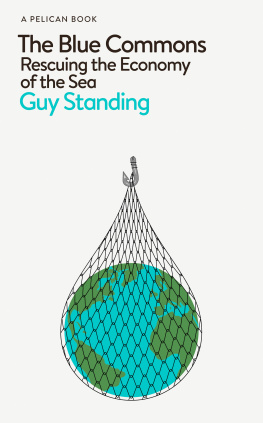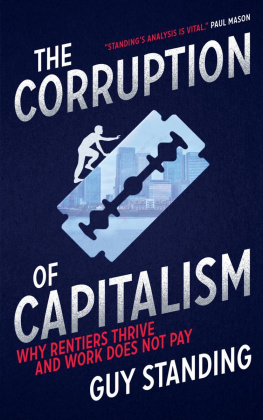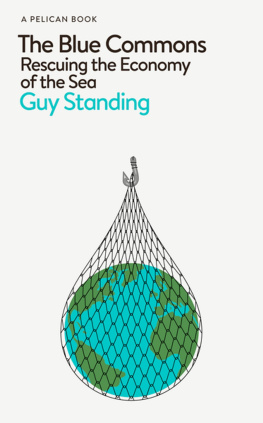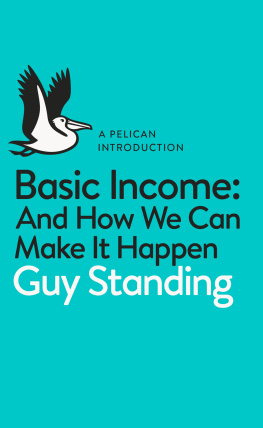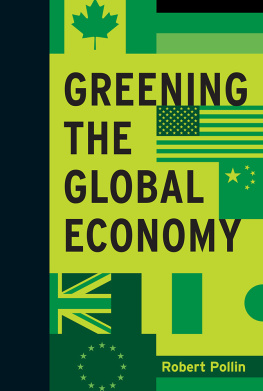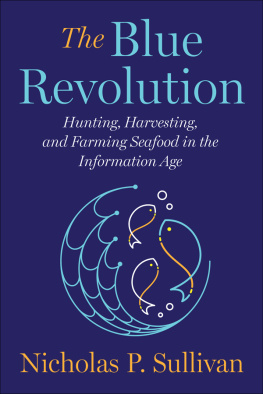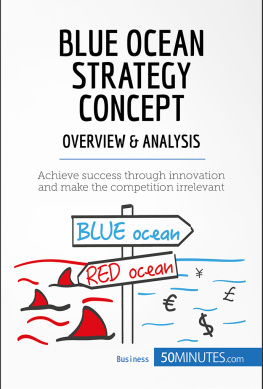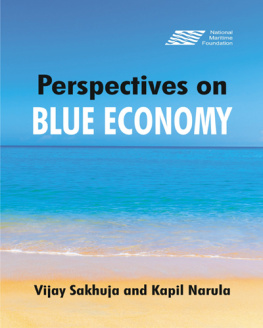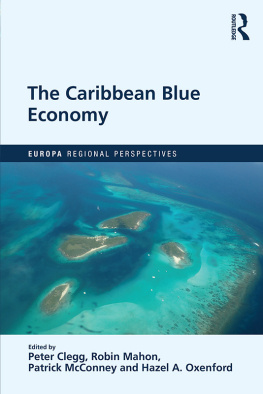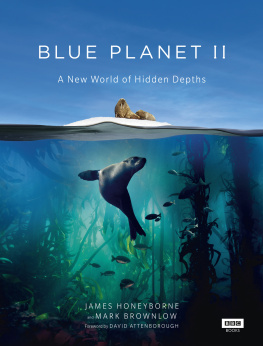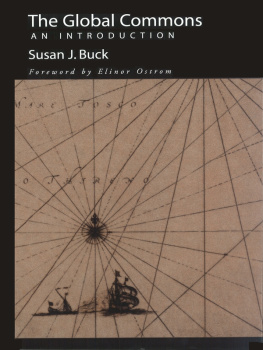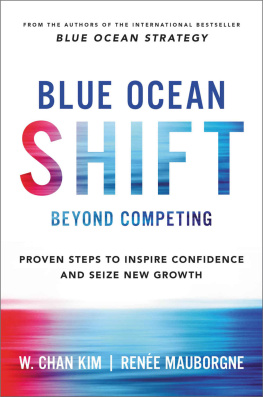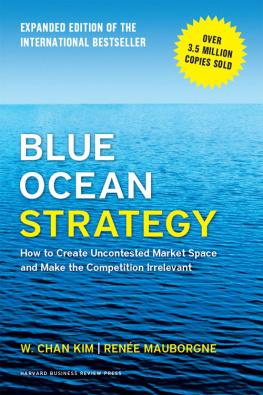GUY STANDING
The Blue Commons
Rescuing the Economy of the Sea

PENGUIN BOOKS
UK | USA | Canada | Ireland | Australia
New Zealand | India | South Africa
Penguin Books is part of the Penguin Random House group of companies whose addresses can be found at global.penguinrandomhouse.com.

First published by Pelican Books in 2022
Text copyright Guy Standing, 2022
Excerpt from by John Masefield reproduced by kind permission of The Society of Authors as the Literary Representative of the Estate of John Masefield
The moral right of the author has been asserted
Cover by Matthew Young
Book design by Matthew Young
ISBN: 978-0-241-47590-4
This ebook is copyright material and must not be copied, reproduced, transferred, distributed, leased, licensed or publicly performed or used in any way except as specifically permitted in writing by the publishers, as allowed under the terms and conditions under which it was purchased or as strictly permitted by applicable copyright law. Any unauthorized distribution or use of this text may be a direct infringement of the authors and publishers rights and those responsible may be liable in law accordingly.
For Andre,
Blue-Green Commoner
Carpe diem!
Preface
The oceans have a special place in human culture. From the beginning of history, the seas have shaped our human destiny and excited our imaginations, from the fantastical sea creatures in the myths and legends of the ancient world to the underwater civilizations of modern-day science fiction. The sea and its imagery infuse the plays of Shakespeare and star in later classics of English literature, in the works of Joseph Conrad (Lord Jim, Typhoon), Herman Melvilles Moby Dick, Ernest Hemingways The Old Man and the Sea, through to Yann Martels Life of Pi, to name but a few.
Alongside tales of pirates and great naval battles, we celebrate the adventures and discoveries of the courageous navigators and explorers: the Polynesians, Vikings and Phoenicians who braved vast ocean expanses in canoes and barques to trade and settle; Zheng He, the fifteenth-century Chinese admiral and explorer, who mounted expeditions as far afield as India and East Africa; Ferdinand Magellan and Francis Drake, the first to circumnavigate the globe in the sixteenth century; the search for the Northwest Passage through the Arctic Ocean, which claimed many British lives before the first navigation by Roald Amundsen of Norway in 19036; and Britains Robin Knox-Johnston, who in 19689 became the first person to sail single-handed and non-stop around the world.
And, in rich countries at least, we have a romantic and sentimental regard for fishers and their communities, reinforced by reality TV programmes such as Deadliest Catch (about Alaskan crab fishing), with fishers depicted as heroic figures struggling against the elements. How else to explain how fishing rights became a make-or-break issue in the Brexit talks on Britains exit from the European Union, although fisheries contribute just 0.1% of UK GDP and 0.2% of the EUs?
The immense and uncontrollable forces of the ocean inspire awe and also respect. As we interact with it, we recognize that we are an integral part of nature, and that the seascape in all its glories and power defines our limitations as well as our sense of adventure and love of life. Yet in modern times awe and respect have given way to a hubristic arrogance, grounded in the view that the oceans, the seabeds, coastal wetlands, the seashore, the sandy or rocky beaches and the estuaries where rivers flow into the sea are ours to exploit, for our food security, for our pleasure and, increasingly, as our future wealth.
Already, ocean ecosystems are threatened with collapse as a result of humanitys activities on land and sea. Rising water temperatures and acidification from global warming, pollution from industry and agriculture, urban coastal development and overexploitation of fish and other marine life have put at risk the life support system of our planet, in the words of Antnio Guterres, UN Secretary-General.
Alexander von Humboldt (17691859), the pioneering explorer and polymath who inspired Charles Darwin and the science of evolution, was perhaps the first to recognize the interconnectedness of ecosystems and warn of the dangers from human attempts to subdue and control nature, such as clearing forests and damming rivers, which he saw in South America. But in recent years these dangers have become existential threats. The destruction of natural habitats and biodiversity has contributed to the growing risk of pandemics such as COVID-19, by bringing people and wild creatures into close proximity and causing viruses deprived of wild hosts to seek an alternative host in humans.
The oceans too are striking back, as warming seas create ever fiercer storms, change weather patterns by shifting global currents and aid the survival and spread of tropical diseases. Rising sea levels lead to coastal erosion, inundations, contamination of freshwater sources and food crops, loss of nesting beaches and displacement of coastal communities as their lands succumb to the invading waters. Moreover, the oceans ability to act as a carbon sink is weakening, after absorbing as much as half of all anthropogenic carbon emissions over the past two centuries.
Planet Earth is much more blue than green. About 70% of its surface is covered by the seas and oceans, which provide half of the oxygen we breathe and contain about three-quarters of all life. Nearly 40% of the global population live in coastal communities and depend on ocean, coastal and marine resources for their livelihoods and wellbeing. Yet green issues, not blue, have hitherto dominated environmental politics and political movements.
For example, in its 2020 report State of Nature in the EU, assessing the status of species and habitats in the European Union, the European Environment Agency had very little to say about the sea, even though the sea area under EU jurisdiction is nearly five times its land area. In a colourful graphic entitled The state of nature report in a nutshell, a compressed blue area at the bottom of the page shows a little trawler, a leaping dolphin and a small whale, with the caption Status and trends of marine species and habitats remain largely unknown. At least it deserved marks for honesty.
This inattention is despite the substantial coverage given to the oceans in international debates on the environment in recent years. The awakening of interest was almost certainly due in part to the BBCs Blue Planet series, released at the end of 2001 and narrated by Sir David Attenborough. This, and the sequel in 2017, brought the plight of the oceans to global attention. It is even called the Blue Planet effect.
More controversially, in 2020 Netflix released Seaspiracy, a polemical documentary watched by millions that draws attention to the loss of fish species and degradation of ocean habitats caused by a rapacious seafood industry. Though criticized for some inaccuracies and misrepresentation, the film will have convinced many to demand drastic corrective action. In a later survey of 8,000 people in England and Wales, 94% said the fate of the oceans and that of humanity were inextricably linked, 85% said safeguarding marine life was personally important to them, and more than half rated global ocean health as poor or very poor.

